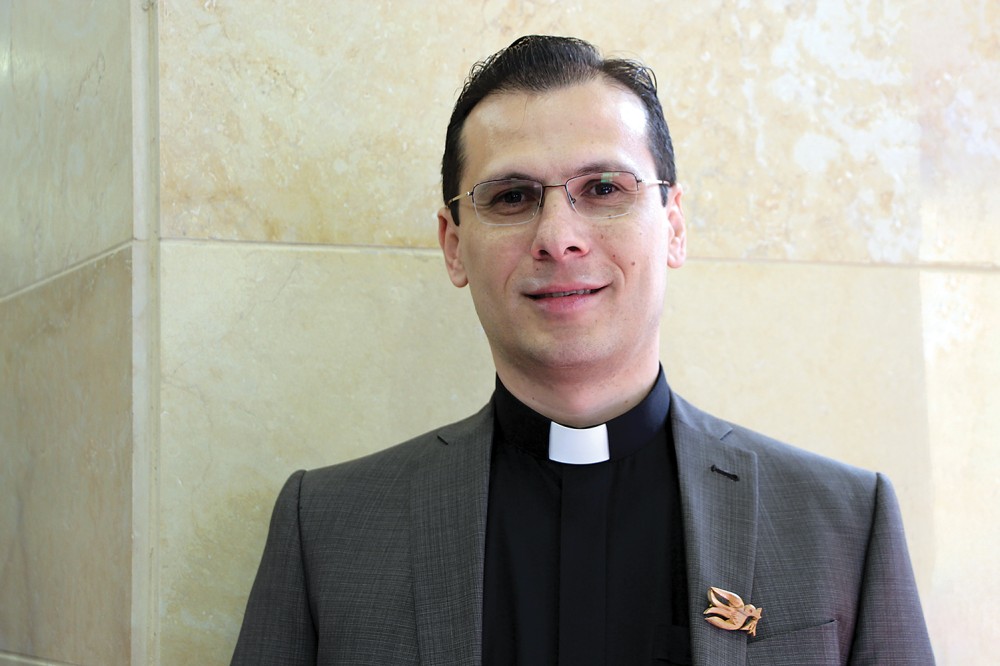Palestinian and Christian in a violent time
“What does it mean to be church amid these very harsh circumstances?” asks Bethlehem pastor Munther Isaac.

Munther Isaac is a Palestinian theologian and pastor of the Evangelical Lutheran Christmas Church in Bethlehem and the Evangelical Lutheran Church in Beit Sahour. He serves as academic dean of Bethlehem Bible College, where he directs the annual Christ at the Checkpoint conference. His forthcoming book, Christ Under the Rubble, is based on an Advent sermon he delivered shortly after the current war in Gaza began.
Tell us about where you grew up and how you became a Lutheran pastor.
I grew up in Beit Sahour, a little town next to Bethlehem. I was born into an Orthodox family, but when I was a child, my siblings joined a conservative evangelical Presbyterian church and took me with them. I’m very grateful for that upbringing.




